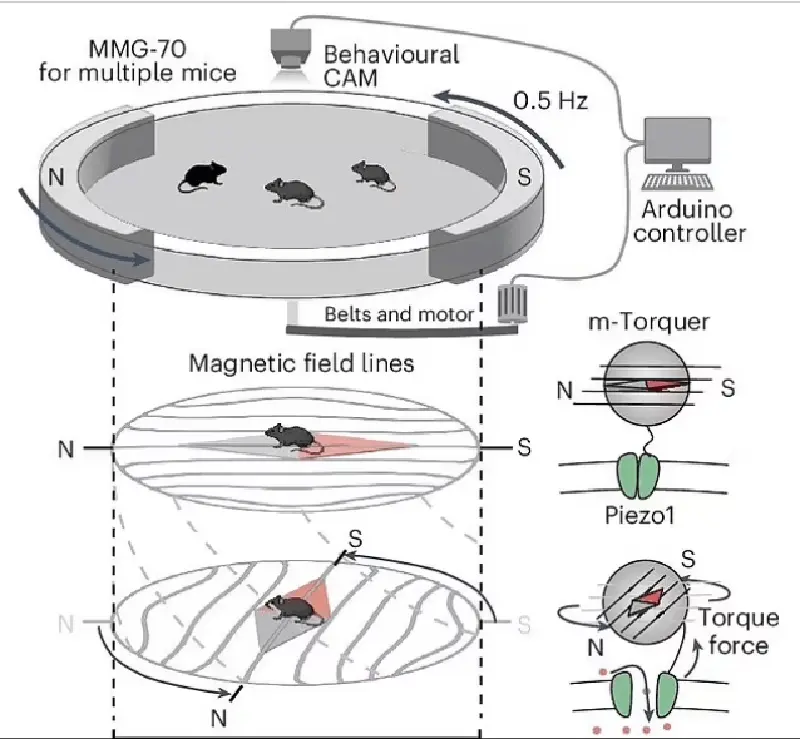Researchers at the Korean Institute for Basic Science (IBS) have announced that they have created the world’s first remote control system. consciousness She controls the brain remotely using magnetic fields. The technology is planned to be used for non-invasive medical procedures, the publication reported. Daily Mail .
Scientists named their invention Nano-MIND, which stands for “Nanomagnetic Genetic Interface for Neurodynamics.” The innovation from the IBS team involves the genetic creation of specialized nanomaterials, the effects of which in neurons in the brain It is possible to adjust remotely using carefully selected magnetic fields. The method, officially called magnetomechanical genetics (MMG), has been used by scientists in the development of brain modulation technology.
The team successfully tested the equipment on mice. During the testing, the scientists tried to awaken the maternal instinct in the test rodents, as well as control their behavior. appetite .
How the research was conducted
For their experiments, the scientists used specially bred, genetically modified laboratory mice. These mice have developed magneto-sensitive ion channels to a greater extent, which act in their neurons like gates, allowing certain molecules and atoms to enter at specific times and at specific speeds.
During a group test on maternal instincts, the stimulation of MHG in some female laboratory rats prompted them to find their lost pups more quickly in a maze. The female rodents stimulated by Nano-MIND approached the pups on average 16 seconds faster and swiftly picked them up.
The team also conducted a two-week experiment with control and experimental groups of mice to determine how these genetically modified animals would respond to Nano-MIND magnetic impulses that would encourage them to eat more or less. As it turned out, the technology easily caused them to either overeat or undereat. In the experiment where the MMG signal prompted the mice to eat more, their body mass increased by an average of 7.5 grams, which is about 18 percent. When the group of rodents was exposed to magnetic fields aimed at reducing appetite, each rodent lost 10 percent of its weight: about 4.3 grams.

What do the authors of the development and experts think about this?
“This is the world’s first technology that allows for the free control of certain areas of the brain using magnetic fields,” said Professor Chon Jin Woo, director of the Nanomedicine Center at IBS, who was at the forefront of the new project.
In his opinion, the new equipment will be used in various healthcare sectors where it is critically needed.
“We expect that the system will be widely used in research aimed at understanding brain functions, complex artificial neural networks, bidirectional brain-computer interface technologies, and new methods for treating neurological disorders,” the professor believes.
However, despite the science fiction nature of remote consciousness control, health experts note that magnetic fields have been successfully used for medical purposes for several decades. “The concept of using magnetic fields to control biological systems is now well known,” commented Dr. Felix Leroy, a senior researcher at the Institute of Neurology in Spain, on the new study.
In his article about the Nano-MIND innovation, which involved genetic modification in mice, Dr. Leroy warned technology developers against rushing to test it on humans. The research results were published in the journal Nature Nanotechnology.
